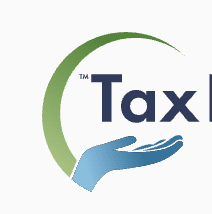
You may also face enforcement actions like liens on your property, wage garnishment, or even legal action. In cases of intentional tax evasion, the consequences may include fines or, in rare instances, jail time.
Whether we like it or not, taxes are a fact of life in the United States. But what happens if you miss the tax deadline or can’t afford to pay what you owe? It’s important to understand the potential consequences of not paying taxes, both immediate and long-term.
In this article, we’ll explain what happens if you don’t pay your taxes on time and what options you have to get back on track, including various tax relief services that may help.
Key Insights
- Tax non-payment can lead to penalties, liens, seizures, and rarely, criminal charges.
- IRS imposes monthly penalties for failure to pay (0.5%) and file (5%), capped at 25%.
- Options: file ASAP, contact IRS for payment plans, or seek professional help.
- Intentional tax evasion may result in criminal charges, fines, and imprisonment.

What Are The Immediate Consequences of Not Paying Taxes?
Missing a tax deadline or not paying your taxes in full can lead to certain penalties and interest on what’s owed. These charges may increase over time, making it more challenging to manage. Some of the penalties and interest you may face include:
Failure to Pay Penalty: The IRS charges a Failure to Pay Penalty for any unpaid taxes due, and the longer you wait to file, the bigger the penalty. The penalty is 0.5% of the unpaid tax for every month (or part of a month) that the taxes are left unpaid, up to a maximum of 25%.
Failure to File Penalty: Filing your tax return and paying your taxes are separate requirements. The IRS charges a Failure to File Penalty when you don’t file your tax return by the due date. As with the Failure to Pay Penalty, it grows over time. The penalty is 5% of unpaid taxes due for each month (or part of a month) that the return is late, up to a maximum of 25%.
Both Filing and Late Payment: If both the payment and filing penalties are applied in the same month, the Failure to File penalty is reduced by the amount of the Failure to Pay penalty, for a combined penalty of 5% per month.
Interest on Penalties: The IRS charges interest on penalties, and the interest rate is adjusted quarterly. So the longer taxes and penalties remain unpaid, the more you’ll owe.
What Are The Long-Term Consequences of Not Paying Taxes?
Neglecting your tax obligations can have both short- and long-term effects. Some of the potential long-term consequences of not paying taxes include:
Wage Garnishments: If you have a job and get paid via a Form W-2, the IRS can take money directly out of your paycheck—before you even receive it—to cover your debt. This may reduce your take-home pay.
Tax Liens: The IRS can place a lien on your property, such as your car, TV, furniture, etc., which means they have a legal claim on these items. If necessary, they can even repossess them to cover the debt.
Bank Levies: The IRS can freeze your bank account and seize funds to cover unpaid tax bills.
Passport Revocation: In rare instances, if your tax debt remains unresolved, the IRS may revoke your passport, limiting your ability to travel abroad.
What Are Your Legal Obligations to Pay Taxes?
If you think the above situations sound a bit harsh, there’s a reason for them—you’re legally required to pay taxes if you make enough money to owe them.
Taxes apply to most types of income, including wages from a W-2 or 1099, capital gains from your investments, rental income, and more.These taxes can be paid through automatic withholding from your paychecks (for W-2 employees) or by making quarterly estimated tax payments (for independent contractors or those receiving Form 1099s).
If taxes go unpaid, the IRS may apply penalties and interest. In some cases, they can also take further actions, such as seizing assets or garnishing wages.
What Legal Actions and Enforcement Can The IRS Take?
The IRS has various enforcement tools designed to collect unpaid taxes efficiently.
If you’re behind on taxes, the IRS will typically send a letter or notice indicating that they haven’t received your tax return, tax payment, or both. These notices often provide a time frame—such as 30 days—for you to respond, though not all require a response. When filing or paying taxes after receiving a notice, you may need to include an explanation (if the notice requires a response).
The IRS may also perform a tax audit, which involves contacting you to examine your tax return and financial records. This could either result in the IRS changing its opinion or further enforcement efforts.
Finally, the IRS might assign a tax collection officer to your case. These officers can take legal action to collect the debt, including seizing assets or garnishing wages.
Can You Face Criminal Charges for Not Paying Taxes?
In most cases, failing to pay your taxes or file your tax return is treated as a civil matter, typically leading to penalties, interest, and collection actions. However, in instances of intentional tax evasion—when someone deliberately avoids paying taxes—the IRS may pursue criminal charges. This can result in significant fines and, in rare cases, potential jail time.
What Are Your Options for Dealing With Unpaid Taxes?
If you find yourself in a situation where you neglect to file your tax return, pay your taxes, or both, don’t panic. There are several steps you can take to resolve the issue, including:
File your Tax Return ASAP: If it’s after the due date and you haven’t filed your return, do so as soon as possible, even if you can’t pay your full tax bill immediately.
Contact the IRS: If you’re struggling to pay your tax bills, you can reach out to the IRS to discuss your situation. They may offer manageable payment plans, potential reductions in tax debts, or other options to help you manage your debt and pay what you can.
Consider a Payment Plan: The IRS may work with you to set up a payment plan that allows you to gradually reduce your tax debt. You’ll need to provide documentation to support your ability to make payments, such as proof of income, expenses, and assets.
Consider Contacting a Tax Resolution Professional: There are many professional tax resolution experts who specialize in helping individuals resolve tax debts. They can help you negotiate with the IRS and find a solution that fits your situation.
Bottom Line
Failing to file or pay your taxes can lead to consequences such as penalties, interest, asset seizure, and, in rare cases, criminal charges. By understanding your obligations, filing tax returns on time, paying your tax debts, and considering help from a tax relief service, you may avoid these challenges and maintain a healthier financial situation.



